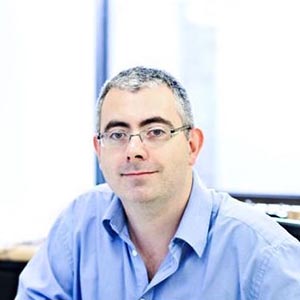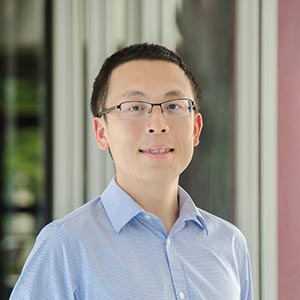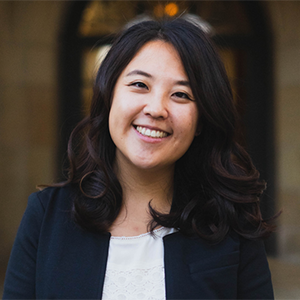Awards
SANS is pleased to recognize our members with three key awards each year.
ANNOUNCING SANS 2026 SOCIETY AWARDS RECIPIENTS
2026 Distinguished Scholar Award
The Distinguished Scholar Award recognizes the broad scope and potentially integrative nature of scholarship in social and affective neuroscience. It honors a scholar who has made distinctively valuable research contributions across their career in areas by significantly advancing our understanding of the biological basis of social and affective processes or expanding the core of social and affective neuroscience discipline. The winner of this award will receive travel compensation (up to $500 USD), complimentary registration to the 2026 conference in San Diego as well as an invitation to be our distinguished scholar speaker at the conference

John P. O'Doherty
Division of Humanities and Social Sciences, California Institute of Technology, Pasadena, CA
2026 Distinguished Scholar Award Winner
John O’Doherty studies the computational and cognitive neuroscience of learning and decision making. His primary methodologies include computational modeling, behavioral analysis,
neuroimaging, and human electrophysiology. His research focuses on how the brain encodes the
value of stimuli, states, and actions to support adaptive decision-making and behavior. This work
includes investigating the mechanisms that underlie learning from trial-and-error feedback about the value of actions and stimuli.
He is also interested in understanding how different behavioral control mechanisms such as the
Pavlovian, habitual, and goal-directed systems, contribute to behavior. In addition, he has examined how the brain learns and makes decisions in social contexts, characterizing the computational mechanisms that support social learning and inference. More recently, his work has explored how these systems interact at both neural and behavioral levels, and how individual differences in these systems contribute to psychiatric disorders.
O’Doherty completed an undergraduate degree in Mathematics and Psychology at Trinity College
Dublin in 1996. He earned a D.Phil in Experimental Psychology from the University of Oxford in 2001
and subsequently served as a postdoctoral fellow at the Wellcome Department of Imaging
Neuroscience at University College London until 2004. He joined Caltech in 2004 and became a full
Professor of Psychology in 2009. From 2008 to 2010, he also held a Professorship in Cognitive
Neuroscience at Trinity College Dublin. He served as Director of the Caltech Brain Imaging Center
from 2014 to 2017 and became the Fletcher Jones Professor of Decision Neuroscience in October
2021.
Past Winners
2025 – Kevin Ochsner
2024 – Mauricio Delgado
2023 – Matthew Lieberman
2022 – Eveline Crone
2021 – Uta & Chris Frith
2019 – Nancy Kanwisher
2018 – Betsy Murray
2017 – B.J. Casey
2016 – John Cacioppo
2015 – James J. Gross
2014 – Elizabeth Phelps
2013 – Ralph Adolphs
2026 Mid-Career Award
The Mid-Career Award recognizes a mid-stage investigator who has made significant contributions to Social and Affective Neuroscience in terms of outstanding scholarship and service to the field. The winner of the award will receive a $500 honorarium, complimentary registration to the 2026 conference in San Diego, and deliver a short presentation at the event.

Shuo Wang
Department of Radiology, Washington University in St. Louis
2026 Mid-Career Award Winner
Dr. Shuo Wang is an Associate Professor of Radiology, Neurosurgery, and Biomedical Engineering at Washington University in St. Louis. He received his Ph.D. from Caltech in 2014 and completed postdoctoral training at Caltech and Princeton University in 2017. His research integrates multimodal, advanced measurement techniques with sophisticated computational approaches to elucidate the neural mechanisms and computations underlying face and object processing, visual attention, emotion, and memory. The overarching questions guiding his work focus on how the brain recognizes faces and objects, discerns environmental significance, and translates visual information into memory. He is particularly interested in the neural computations that support these cognitive processes. Using a multimodal approach, he investigates these questions at both the microscopic level—through state-of-the-art human single-neuron recordings—and the macroscopic level, employing fMRI, EEG, and intracranial EEG. These experimental methods are complemented by advanced computational techniques designed to handle complex, large-scale datasets. Dr. Wang and his team have developed novel tools for deep learning–based analysis of neural responses, computational saliency and memory modeling, neural decoding, and automated video analysis. His research also includes characterizing individual differences in cognitive processes, particularly to understand how these processes are disrupted. To this end, he studies brain lesion patients, including rare congenital cases with focal amygdala lesions, as well as individuals with autism, representing extremes in cognitive variation that likely exist along a continuum. His research has been recognized with an NSF CAREER Award, a DoD Young Investigator Award, the Dana Clinical Neuroscience Award, and a Powe Award.
Past Winners
2025 – Catherine Hartley
2024 – Luke Chang
2026 Early Career Award
The Early Career Award recognizes an early-stage investigator who has made significant contributions to Social and Affective Neuroscience terms of outstanding scholarship and service to the field. The winner of the award will receive a $500 honorarium, complimentary registration to the 2026 conference in San Diego, and deliver a short presentation at the event.

Elisa Baek
2025 Early Career Award Winner
Elisa Baek is an Assistant Professor at the University of Southern California, where she directs the Social Connection Lab. Elisa draws from methods and approaches from social psychology, neuroscience, network science, and communication to study what helps people feel socially connected to one another. She received her Ph.D. from the University of Pennsylvania and completed her postdoctoral training at UCLA.
Past Winners
2025 – Mark Thornton
2024 – Justin Minue Kim
2023 – Oriel FeldmanHall
2022 – Jon Freeman
2021 – Catherine Hartley
2020 – Emily Falk
2019 – Jamil Zaki
2018 – Leah Somerville
